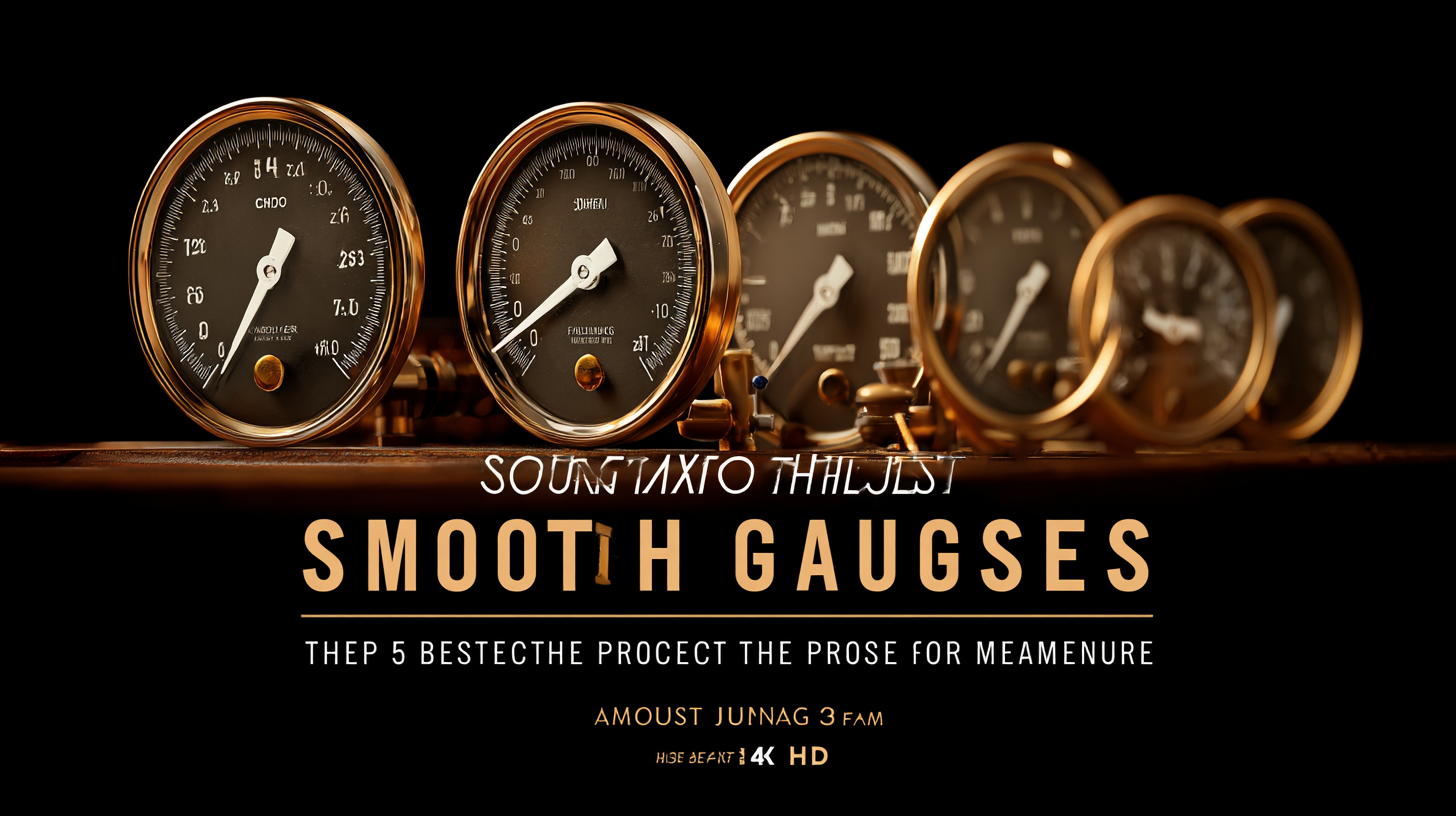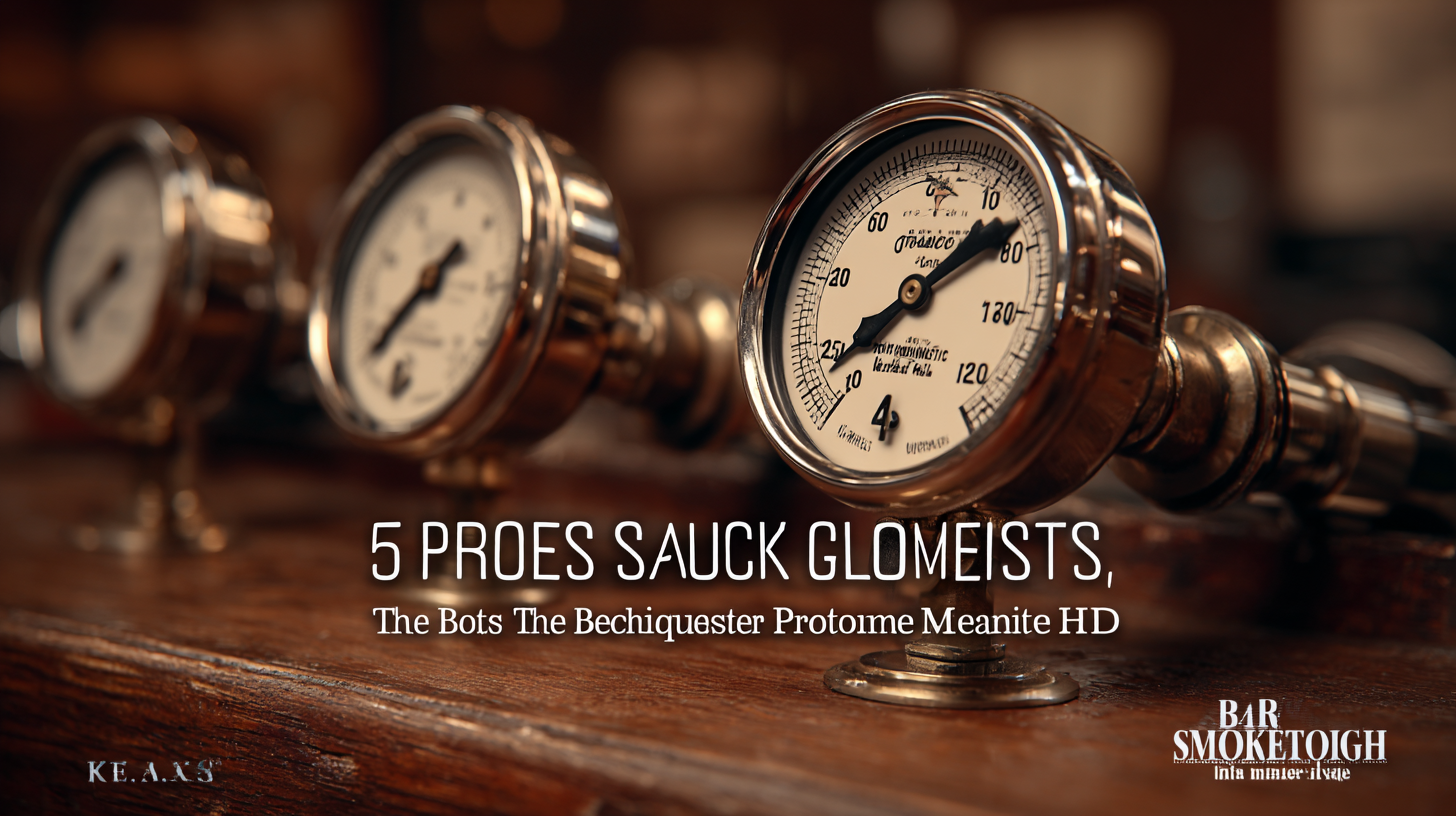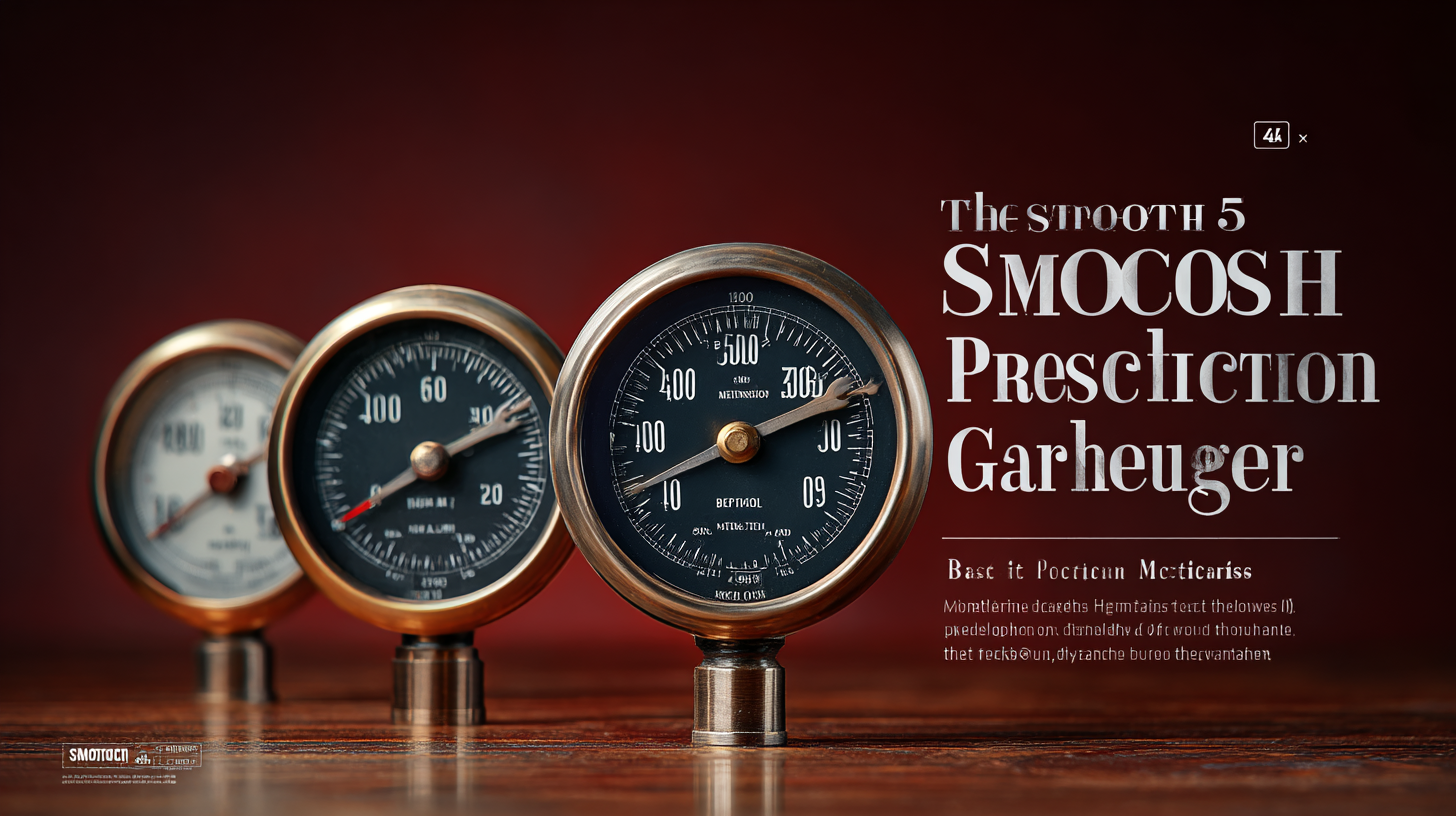
In the realm of precision measurement, choosing the right tools is critical for achieving accurate results. Smooth gauges, which are essential for assessing surface finishes and dimensions, have evolved significantly with advancements in technology. According to a report by the Precision Measuring Instrument Manufacturers Association, the global market for precision measurement tools, including smooth gauges, is poised for a CAGR of 8.5% from 2021 to 2026, reflecting heightened demand across various industries. With such rapid growth, it becomes imperative for professionals to make informed decisions when selecting the best smooth gauges for their specific applications. This blog presents five essential tips to guide you in choosing smooth gauges that not only meet industry standards but also enhance your measurement accuracy, thereby contributing to overall operational efficiency.

Smooth gauges are indispensable tools in precision measurement, ensuring the accuracy and reliability of various engineering and manufacturing processes. Their importance is underscored by data from the National Institute of Standards and Technology, which indicates that even minor discrepancies in measurement can lead to significant errors in production, costing industries millions annually. The integrity of measurements directly impacts product quality, safety, and compliance with regulatory standards, making the selection of appropriate smooth gauges critical.
 When choosing the best smooth gauges, consider the material and finish of the gauges. High-quality materials, such as stainless steel or carbon steel, offer durability and resistance to wear, while a fine finish minimizes surface imperfections that could affect measurements. Additionally, ensure that the gauges meet the necessary industry specifications; for instance, gauges adhering to ISO or ASTM standards often provide higher accuracy and consistency, as highlighted in industry reports.
When choosing the best smooth gauges, consider the material and finish of the gauges. High-quality materials, such as stainless steel or carbon steel, offer durability and resistance to wear, while a fine finish minimizes surface imperfections that could affect measurements. Additionally, ensure that the gauges meet the necessary industry specifications; for instance, gauges adhering to ISO or ASTM standards often provide higher accuracy and consistency, as highlighted in industry reports.
Another tip is to evaluate the manufacturer's reputation and support services. Selecting gauges from reputable manufacturers, backed by positive user reviews and ample technical support, can significantly enhance measurement reliability. Engaging with companies that offer calibration services is also beneficial, as regular calibration ensures that the gauges maintain their accuracy over time.
When selecting smooth gauges for precision measurement, it’s crucial to focus on key characteristics that ensure accuracy and reliability. One of the most important attributes is the material of the gauge. High-quality materials, such as stainless steel or carbide, not only enhance durability but also provide resistance to wear, which is essential for maintaining precise measurements over time.
Another critical factor is the gauge's calibration. Properly calibrated gauges will offer consistent measurements, minimizing the risk of errors in your projects. Regular calibration checks should be part of your maintenance routine to ensure continued precision. Additionally, consider the gauge’s design; ergonomic features can make it easier to handle, allowing for better control during measurement.
Lastly, look for gauges that offer an adequate range of measurement. A versatile smooth gauge should cater to various size requirements in your work, helping you to streamline your processes while ensuring accuracy across different applications. By keeping these characteristics in mind, you will be well-equipped to choose the best smooth gauges that meet your precision measurement needs.
| Characteristic | Description | Importance |
|---|---|---|
| Material Quality | High-quality materials ensure durability and resistance to wear. | Critical - affects longevity and reliability. |
| Precision Level | Gauges should have a tight tolerance to provide accurate measurements. | Essential - ensures measurement accuracy. |
| Ease of Use | Design should facilitate easy measurement and adjustments. | Important - enhances user experience and efficiency. |
| Calibration | The ability to calibrate gauges to maintain accuracy over time. | Very Important - supports long-term precision. |
| Measurement Range | Wide measurement range allows for versatility in applications. | Useful - increases the range of potential applications. |
When it comes to selecting smooth gauges for precision measurement, understanding the material composition is essential for enhancing gauge durability. According to a report by the ASTM International, the choice of materials can significantly impact a gauge's resistance to wear, deformation, and environmental factors. For instance, gauges made from higher-grade stainless steel, such as AISI 316, exhibit superior corrosion resistance and maintain their dimensional stability under varying temperature conditions. This is crucial in industries where extreme conditions are commonplace, such as aerospace and automotive manufacturing.
In addition, the role of coating technologies cannot be overlooked. Research from the Journal of Materials Science indicates that gauges coated with advanced materials like titanium nitride (TiN) can enhance the lifespan of gauges by up to 300%. This is due to the coating's ability to reduce friction and wear during use, which is a leading cause of gauge failure. Selecting materials with optimal properties not only increases measurement accuracy but ultimately contributes to longer-lasting, more reliable gauges. By focusing on material composition, manufacturers can ensure that their gauges perform consistently over time, even in the most demanding environments.
When selecting smooth gauges for precision measurement, adhering to industry standards and calibration practices is crucial to achieving accurate results. Organizations like the International Organization for Standardization (ISO) and the American National Standards Institute (ANSI) set forth guidelines for measurement and testing, ensuring consistency across different instruments. According to a 2022 report by the National Institute of Standards and Technology (NIST), measurements that conform to these standards can reduce error rates by up to 15%, which is essential for industries relying on high precision.
Calibration practices play a pivotal role in maintaining the accuracy of smooth gauges. Regular calibration against known standards allows operators to identify any drift in measurement performance, which may occur over time due to wear, environmental factors, or incorrect usage. Data from a recent technical paper published by the Institute of Electrical and Electronics Engineers (IEEE) highlighted that facilities performing routine calibrations saw a 20% increase in measurement reliability. Investing time and resources into proper calibration not only enhances the accuracy of measurements but also ensures compliance with regulatory requirements, fostering trust in the quality of the final products.
Proper maintenance and storage of smooth gauges are essential for ensuring their longevity and precision. One critical tip is to always clean the gauges after use. This prevents the buildup of contaminants that can affect measurements and damage the gauge over time. Use a soft cloth and appropriate cleaning solution to remove any residues, and never use abrasive materials that could scratch the surface.

Another vital practice is to store smooth gauges in a controlled environment, away from extreme temperatures and humidity. High humidity can lead to rust and corrosion, while temperature fluctuations can affect the material properties of the gauge. Using a protective case with foam padding can help absorb shocks and prevent physical damage when not in use.
Additionally, consider regularly calibrating your gauges to ensure accuracy, as this will help maintain their precision for longer durations. Following these best practices will not only preserve your smooth gauges but also enhance their performance in precise measurements.

